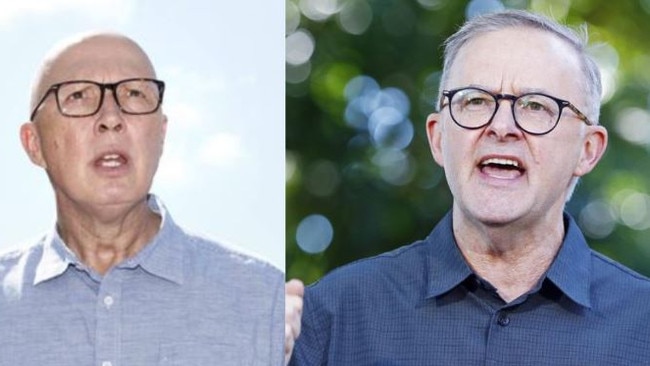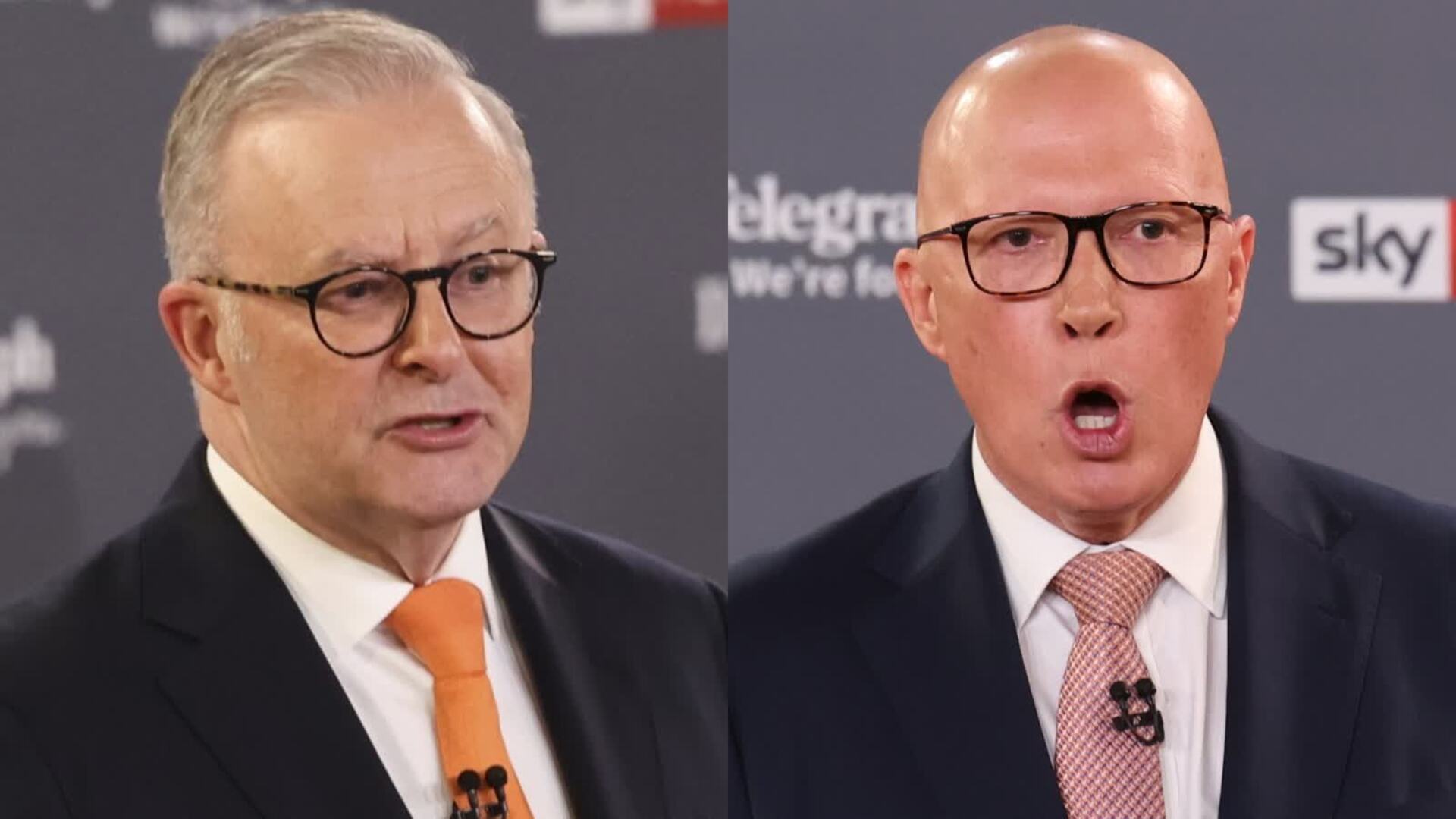
The latest Newspoll shows the Labor Party and the Coalition are at their lowest primary vote support on record for the survey taken at the start of the last week of the election campaign on 34 per cent and 35 per cent respectively.
In the 40-year history of Newspoll, the major parties have never had lower support going into the final week of campaigning and with people already having cast their votes.
Preference distribution gives Labor a two-party-preferred lead of 52 to 48 per cent, which is consistent with other major polls, and favouritism to win.
The brutal reality of the lowest primary votes for the major parties on record is that the Coalition is unlikely to win and Labor is most likely to have to form a minority government.
This is particularly the case with the Newspoll showing 48 per cent of people believing the Albanese government did not deserve to be re-elected.
What makes sensible predictions even more difficult is that preferences will now decide so many seats – effectively making every seat a marginal – and the impact of the teal independents, Greens’ support, new Muslim Voice candidates, a rise in One Nation votes and even Clive Palmer’s big-spending Trumpets confuses the picture.
In 2010, the penultimate Newspoll survey had Labor, under Julia Gillard, on 38 per cent – four points higher than now – and the Tony Abbott-led Coalition on 41 per cent – six points higher than now – and Labor was forced into minority.
In 2019, when Bill Shorten was told he was going to win and stopped campaigning on the Friday before the poll, Labor was on 37 per cent, the Coalition on 39 per cent and Scott Morrison had a “miracle victory”.
Yet Anthony Albanese has been campaigning confidently with the aim of winning a majority on Saturday, rejecting suggestions of any deals with the Greens to govern and preparing to serve a full term as Prime Minister.
Albanese is confidently projecting a majority win with gains from the Greens, a teal or two and from the Coalition while defending the Labor fortress of Western Australia. “I have been campaigning from day one … and I have consistently argued the case for Labor, not for minority parties,” he told The Australian.

“We are targeting not just Coalition-held seats. We are targeting in particular (Greens seats) Brisbane, Ryan and Griffiths,” he said.
Peter Dutton is voicing doubt about the published polls showing Labor in front nationally; he maintains that the opposition is competitive in marginal seats.
It is telling that the majority of the Opposition Leader’s campaign has been conducted in Labor-held seats, an aggressive and assertive attack designed to win Labor seats.
Now, in the final week, he’s aiming at teal Climate 200 seats that decided the last election and will be crucial for the Coalition in this election.
After suggesting the Coalition was getting stronger advice on its performance than the national polls, Dutton was quick to point to the high level of uncommitted or undecided voters at this stage of the campaign.
On Monday, he said: “There’s something like one in three Australians who are undecided or soft voters, at the moment – that is a historically high number in federal elections and it shows that people are weighing up their options as we approach this weekend.”
What this all means is that national polls that point to a record low support for the major parties don’t make predicting the result any easier – in fact they make it harder.





